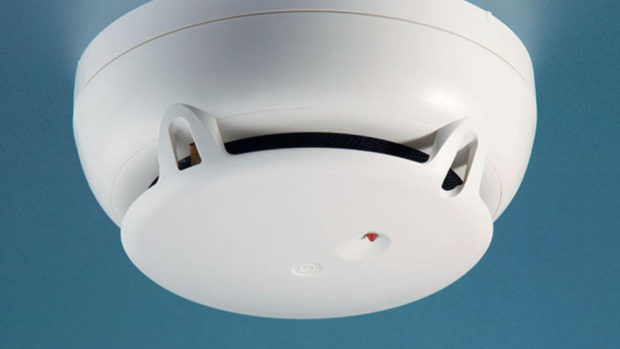New legislation will come into force in February next year requiring interlinked smoke alarms to be fitted in every home.
A heat alarm must also be installed in every kitchen.
There have been calls to delay the new rules due to the impact of the Covid-19 pandemic.
Why are the smoke alarm rules changing?
A review was carried out in the wake of the tragic fire at Grenfell Tower in London, leading to stricter fire safety regulations for homes.
Who is responsible for implementing the changes?
Property owners are responsible for ensuring the new standards are being met, and all homes are covered by the rules.
What must be done to comply with the rules?
The standard requires that a smoke alarm be installed in the room most frequently used for general daytime living purposes, that there is one smoke alarm in every circulation space on each storey, such as hallways and landings, and that one heat alarm is installed in every kitchen.
All alarms should be ceiling mounted and interlinked. Where there is a carbon-fuelled appliance (such as boilers, fires and heaters) or a flue, a carbon monoxide detector is also required which does not need to be linked to the fire alarms.
When does the new standard come into force?
Homeowners and landlords have until February 2021 to comply with the rules.
How much will it cost and who will pay?
The Scottish Government estimates that it would cost £220 for an average three-bedroom house which requires three smoke alarms, one heat alarm and one carbon monoxide detector. The cost is the responsibility of home-owners and landlords.
I already have smoke alarms, will I need to change them?
According to the Scottish Government, unless these alarms are interconnected, you will need to change them.
Do they need to be mains powered?
You can install long-life lithium batteries or mains-wired alarms. According to the Scottish Government, mains-wired alarms are generally cheaper, however, they will need to be fitted by a qualified electrician.
Why are the changes proving controversial?
Concerns have been raised about the cost of the work, the time-frame and the perceived lack of publicity to raise awareness, during the pandemic. Questions have also been asked about allowing workers into homes to carry out system upgrades, given restrictions designed to prevent the spread of the coronavirus.
